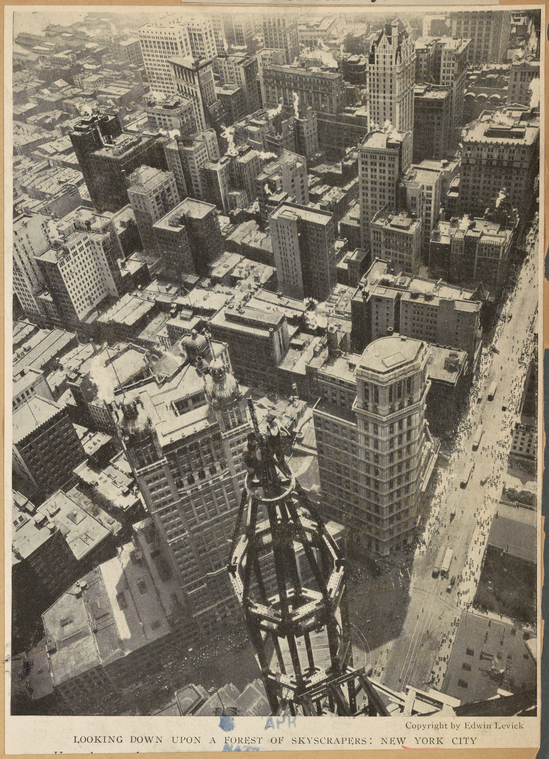How to Site See

The subject of this research guide is “site research,” which encompasses both individual building research, and researching a neighborhood, area, locale or region - any physical spot on a map within fixed boundaries. Some resources are specific to what kinds of information a researcher may be looking for – like an address directory for researching a building, or a local history monograph about a neighborhood – and some resources are useful in general, like image collections and newspapers. Yet, essentially, anything can count as a resource for local history: a matchbook, business card, advertisement, vintage dress label, old beer can - anything that yields dimension for a time and a place. Research methods demand an open mind. If you gain an iota of knowledge or insight, if there is a turn in your perception, a new ray of light on the past, no matter how faint, then that resource belongs in your bibliography (which this librarian vouches is allowed to include materials other than books and still sustain its original meaning).
Note that this guide expands and updates our division’s prior guide, Researching New York City Neighborhoods, published in 2015, with a focus on the approach to researching a locale, setting the mood to get started, in addition to providing more recently available resources.
Reference Librarians
Accessibility for Print Disabilities
For researchers with print disabilities, the Library has resources and services available upon request. The following services are available:
Digitization of Select Research Materials
Researchers who are homebound or have a print disability or visual impairment can explore many of our research collections online and request digitization of specific items of interest. To request the digitization service, email accessibility@nypl.org. Please note that you must be a patron of the Andrew Heiskell Library. This digitization service only includes material belonging to the research collections and does not apply to branch/circulating collections.
Screen Readers and Enlargers
Every public PC at all New York Public Library locations is equipped with JAWS screen reading software and MAGic software for enlarging the screen, changing colors and contrast, and screenreading.
Andrew Heiskell Braille and Talking Book Library
The Andrew Heiskell Library offers popular reading materials in accessible audio and braille formats, as well as free membership to the Bookshare database of over one million accessible texts. It also offers individual coaching and a large variety of group workshops on topics related to accessible technology. Check the listings on our website, call 212-206-5400, or email talkingbooks@nypl.org
For more information, see the Accessibility at NYPL page.
